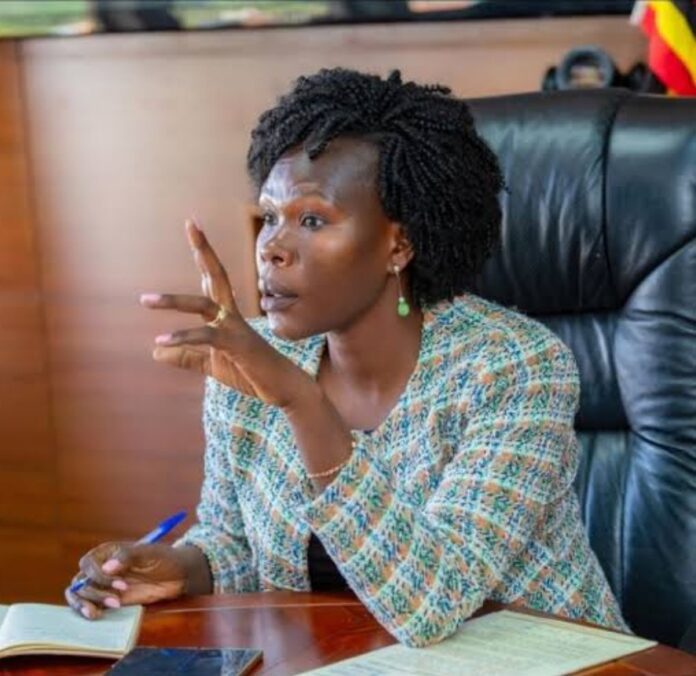As the West Nile region prepares to commemorate the 2025 West Nile Peace Day on Saturday, April 12, in Yumbe District, our reporter sat down with the State Minister of Finance for Investment and Industrialization, Evelyn Anite, who hails from Arua District.
She reflected on the lasting peace and stability brought to the region, noting that these improvements have allowed the people to engage in trade and foster regional development.
“First and foremost, we must thank President Yoweri Kaguta Museveni, who played a pivotal role in pacifying West Nile. Celebrating 23 years of peace is a significant milestone,” Minister Anite shared. “I have heard from our parents and grandparents how devastating the war was for the people of West Nile. Lives were lost, property destroyed, and many were forced into exile until President Museveni called them back home.”
The minister, visibly happy and upbeat, continued, explaining that the peace restored in the region enabled many who had fled to neighboring countries to return home.
This return was crucial for the flourishing trade relations between West Nile and the bordering districts, as well as neighboring countries such as the Democratic Republic of Congo and South Sudan.
“Some of the exiles were hesitant to return. They sent relatives in stages to test if Uganda was indeed peaceful enough for them to come back. Some sought refuge in DRC and South Sudan. But once peace was restored in West Nile, we were able to stabilize and recover,” she explained.
The Minister said one of the most notable outcomes of this peace is that West Nile has become a thriving trade hub. Trade is the backbone of the region, and everyone has benefited from the cross-border trade with neighboring countries.
She said one of the significant achievement in this regard being the road from Kampala to Oraba, which has been made possible through trade.
The Minister also informed our reporter of the plans for developing four industrial parks in West Nile, specifically in the districts of Nebbi, Madi Okolo, Koboko, and Yumbe.
Minister Anite commended the people of West Nile for their resilience and hard work. She noted how they have embraced industrialization and development since the end of the conflict.
The region’s connection to the national electricity grid has been a key enabler, facilitating the growth of industries that provide jobs and improve livelihoods.
“Being connected to the national grid has been a game changer for us in West Nile. For years, we were unable to fully harness our potential because we were either in a war-torn area or living in exile. Now, with stable power, we see factories emerging in sectors like tobacco, cereals, food processing, textiles, cosmetics, and spirits. The stability of electricity in the region has made all of this possible,” she emphasized.
“With electricity now available, more investors are showing interest in West Nile. In the past, investors were hesitant to come here due to a lack of power, infrastructure, and peace. But today, we are excited to see the region showing significant development. We are confident that West Nile is on the path to greater heights, and we have every reason to celebrate this Peace Day,” she concluded.
The West Nile Peace Day celebrates the peace agreement signed on December 24, 2002, between the Government of Uganda and the Uganda National Rescue Front II (UNRF II), the second rebel group to come from the region.
Between 1980 and 1985, General Moses Ali formed the Uganda National Rescue Front (UNRF), which fought against the Milton Obote II regime. After the group’s demobilization, General Ali Bamuze founded UNRF II, which operated mainly in the areas of Yumbe, Obongi, and Moyo.
The peace agreement signed in 2002 included the incorporation of UNRF II soldiers into the Ugandan Army and the allocation of Shs9.2 billion in compensation to the group.















